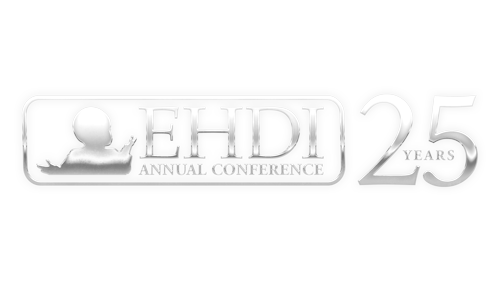2026 Early Hearing Detection & Intervention Conference
March 15-17, 2026 • Jacksonville, FL
3/11/2025 | 9:40 AM - 10:10 AM | Listening and Spoken Language Intervention and Why it Looks Different from Traditional Speech and Language Therapy. | 308
Listening and Spoken Language Intervention and Why it Looks Different from Traditional Speech and Language Therapy.
The auditory verbal approach to addressing hearing loss in children is distinct from traditional speech therapy in its emphasis on auditory access and the use of specialized techniques and strategies to enhance auditory perception. Hearing loss significantly impacts a child’s auditory, speech, and language development, necessitating regular monitoring of hearing technology. The LMH 10 sounds are crucial tools for assessing a child’s access to speech and language structures, a practice central to the auditory verbal approach.
Acoustic highlighting techniques, such as whispering and elongation, are unique strategies that improve the perception of speech phonemes, leading to better speech production. Unlike traditional speech therapy, which may rely more on visual cues, the auditory verbal approach focuses on auditory learning, encouraging children to rely on their hearing. This method also integrates other sensory modalities as needed, but always with a primary focus on auditory input.
Understanding that children with hearing loss are not speech or language impaired but deaf or hard of hearing is fundamental to this approach. This perspective guides the approach to speech correction and language comprehension, emphasizing auditory cues over visual ones. By integrating these specialized strategies, the auditory verbal approach supports the holistic development of children with hearing loss, ensuring they achieve their full communicative potential in a way that traditional speech therapy may not fully address.
- The participants will identify how hearing loss specifically affects a child’s auditory, speech and language skills and is able to distinguish their unique needs for auditory interventions from traditional speech therapy.
- The participants will identify acoustic highlighting strategies, such as whispering and elongation and apply them to teaching speech sound development by enhancing auditory access rather than on visual cues.
- The participants will identify three ways in which the auditory verbal approach supports language development by focusing on auditory input and access to language in daily life.
Presentation:
3545975_18097JodiCottrell.pdf
Handouts:
Transcripts:
CART transcripts are NOT YET available, but will be posted shortly after the conference
Presenters/Authors
Jodi Cottrell
(Primary Presenter,Author), Marshall University/The Luke Lee Listening, Language and Learning Lab, cottrellj@marshall.edu;
Jodi Cottrell, Au.D., CCC-A, LSLS Cert. AVEd, is an Assistant Professor and the program director of The Luke Lee Listening, Language and Learning Lab (The “L”) at Marshall University in the Department of Communication Disorders. She received her Master of Science degree in Audiology at West Virginia University and her Clinical Doctorate of Audiology through Salus University. In July of 2008, Dr. Cottrell became the program director and classroom teacher at The “L” where she provides auditory verbal education services to the students in the preschool program and in the parent infant program, as well as audiological services including hearing aid programming, cochlear implant mapping, and pediatric audiological evaluations through the Marshall Speech and Hearing Center. In 2014 Dr. Cottrell became the first certified Listening and Spoken Language Specialist in West Virginia. She currently mentors future listening and spoken language specialists. Most recently, in 2020 she became an assistant professor in the Communication Disorders department teaching audiology and aural rehabilitation. Dr. Cottrell is currently the chair of the board of directors for the Center for Wellness in the Arts, NSSLHA faculty advisor, and the current President of West Virginia AG Bell. Prior to her position at Marshall she was the Director of Audiology at River Cities Ear, Nose, and Throat Specialists, PLLC for 8 years.
ASHA DISCLOSURE:
Financial -
No relevant financial relationship exists.
Nonfinancial -
• Has a Professional
(I am the current WV Chapter of AG Bell which is a program that support listening and spoken language development in deaf and hard of hearing children. )
relationship for Board membership.
AAA DISCLOSURE:
Financial -
Financial relationship with Marshall University.
Nature: Employed at Marshall University as an assistant professor and program director.
Nonfinancial -
No relevant nonfinancial relationship exists.
